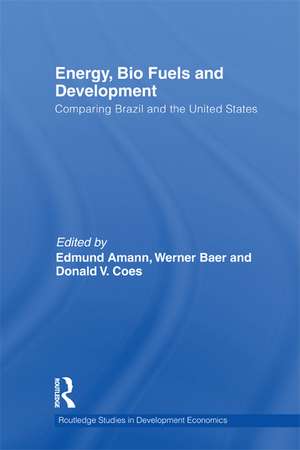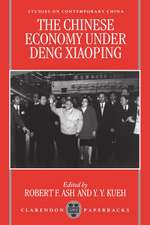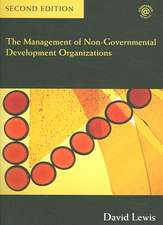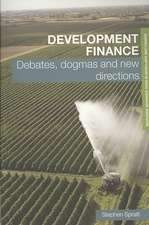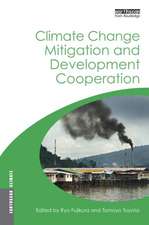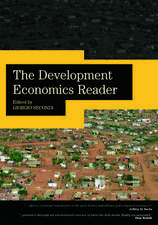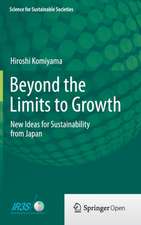Energy, Bio Fuels and Development: Comparing Brazil and the United States: Routledge Studies in Development Economics
Editat de Edmund Amann, Don Coes, Werner Baer (Dec'd)en Limba Engleză Paperback – 11 noi 2013
Energy, Bio Fuels and Development evaluates the experience of Brazil, with elements of that of the US highlighted for the purpose of comparison. A key area of concern surrounds the causes and consequences of the contrasting routes to biofuel production represented by sugar cane (in Brazil) and corn (in the US). The book also places the recent biofuels drive in perspective by discussing the broader energy policy context. The book shows the complexity and interdependence of the issues involved in moving a society reliant on non-renewable energy sources to one based on alternative sources of energy.
The key conclusion to emerge is that Brazil, in pursuing a flexible mix of fossil fuels and bio-fuels, has greatly diminished its exposure to exogenous energy shocks. The US experience – in particular its development of corn-based ethanol – has been more problematic, though by no means without successes. It is argued that bio fuels should not be seen as a panacea. There are clear limits to the efficiency and cost effectiveness of current biofuel production technologies while there remain concerns surrounding potentially adverse effects on food production and rural livelihoods.
This book should be an excellent resource for students focussing on economic development, particularly in the areas of energy, biofuels, rural development and food supply.
| Toate formatele și edițiile | Preț | Express |
|---|---|---|
| Paperback (1) | 473.20 lei 6-8 săpt. | |
| Taylor & Francis – 11 noi 2013 | 473.20 lei 6-8 săpt. | |
| Hardback (1) | 1068.18 lei 6-8 săpt. | |
| Taylor & Francis – 2 dec 2010 | 1068.18 lei 6-8 săpt. |
Din seria Routledge Studies in Development Economics
-
 Preț: 309.74 lei
Preț: 309.74 lei -
 Preț: 327.17 lei
Preț: 327.17 lei -
 Preț: 326.49 lei
Preț: 326.49 lei -
 Preț: 311.41 lei
Preț: 311.41 lei -
 Preț: 394.37 lei
Preț: 394.37 lei - 8%
 Preț: 396.84 lei
Preț: 396.84 lei -
 Preț: 260.82 lei
Preț: 260.82 lei - 18%
 Preț: 1165.24 lei
Preț: 1165.24 lei - 15%
 Preț: 470.31 lei
Preț: 470.31 lei - 18%
 Preț: 1057.05 lei
Preț: 1057.05 lei - 18%
 Preț: 1225.29 lei
Preț: 1225.29 lei - 18%
 Preț: 1113.63 lei
Preț: 1113.63 lei - 18%
 Preț: 1300.62 lei
Preț: 1300.62 lei - 26%
 Preț: 878.42 lei
Preț: 878.42 lei - 18%
 Preț: 1166.05 lei
Preț: 1166.05 lei - 18%
 Preț: 1059.45 lei
Preț: 1059.45 lei -
 Preț: 381.11 lei
Preț: 381.11 lei - 25%
 Preț: 823.63 lei
Preț: 823.63 lei - 21%
 Preț: 361.84 lei
Preț: 361.84 lei - 16%
 Preț: 274.01 lei
Preț: 274.01 lei - 18%
 Preț: 1060.87 lei
Preț: 1060.87 lei - 18%
 Preț: 1168.85 lei
Preț: 1168.85 lei - 18%
 Preț: 1171.89 lei
Preț: 1171.89 lei - 18%
 Preț: 1068.18 lei
Preț: 1068.18 lei - 18%
 Preț: 1060.19 lei
Preț: 1060.19 lei - 18%
 Preț: 1341.98 lei
Preț: 1341.98 lei - 18%
 Preț: 1169.16 lei
Preț: 1169.16 lei - 18%
 Preț: 1057.05 lei
Preț: 1057.05 lei - 15%
 Preț: 714.66 lei
Preț: 714.66 lei - 18%
 Preț: 1287.06 lei
Preț: 1287.06 lei - 18%
 Preț: 1124.73 lei
Preț: 1124.73 lei - 18%
 Preț: 1157.34 lei
Preț: 1157.34 lei - 27%
 Preț: 832.80 lei
Preț: 832.80 lei - 26%
 Preț: 850.91 lei
Preț: 850.91 lei - 18%
 Preț: 1066.79 lei
Preț: 1066.79 lei - 25%
 Preț: 658.19 lei
Preț: 658.19 lei - 25%
 Preț: 992.63 lei
Preț: 992.63 lei - 18%
 Preț: 1069.23 lei
Preț: 1069.23 lei - 15%
 Preț: 703.08 lei
Preț: 703.08 lei -
 Preț: 395.63 lei
Preț: 395.63 lei - 18%
 Preț: 706.91 lei
Preț: 706.91 lei -
 Preț: 422.96 lei
Preț: 422.96 lei - 18%
 Preț: 1055.38 lei
Preț: 1055.38 lei - 27%
 Preț: 993.85 lei
Preț: 993.85 lei - 18%
 Preț: 707.10 lei
Preț: 707.10 lei -
 Preț: 409.19 lei
Preț: 409.19 lei
Preț: 473.20 lei
Nou
Puncte Express: 710
Preț estimativ în valută:
90.55€ • 94.35$ • 74.97£
90.55€ • 94.35$ • 74.97£
Carte tipărită la comandă
Livrare economică 03-17 aprilie
Preluare comenzi: 021 569.72.76
Specificații
ISBN-13: 9780415746359
ISBN-10: 0415746353
Pagini: 356
Ilustrații: 45 black & white illustrations, 92 black & white tables, 45 black & white line drawings
Dimensiuni: 156 x 234 x 23 mm
Greutate: 0.54 kg
Ediția:1
Editura: Taylor & Francis
Colecția Routledge
Seria Routledge Studies in Development Economics
Locul publicării:Oxford, United Kingdom
ISBN-10: 0415746353
Pagini: 356
Ilustrații: 45 black & white illustrations, 92 black & white tables, 45 black & white line drawings
Dimensiuni: 156 x 234 x 23 mm
Greutate: 0.54 kg
Ediția:1
Editura: Taylor & Francis
Colecția Routledge
Seria Routledge Studies in Development Economics
Locul publicării:Oxford, United Kingdom
Public țintă
Postgraduate and UndergraduateCuprins
1. Introduction Edmund Amann, Werner Baer and Don Coes Part 1: Energy Shocks, Policy Change and the Emergence of Biofuels 2. Oil Shocks in Brazil and in the United States Tiago Cavalcanti and João Tovar Jalles 3. Energy and Income Distribution in Brazil’s Development Process Edmund Amann and Werner Baer 4. The Earth is Finite and Other Irrelevancies about the World’s Ultimate Oil Supply Fred Gottheil 5. Energy Restrictions to Growth: The Past, Present and Future Energy Supply in Brazil Adilson de Oliveira and Eduardo Pontual Ribeiro 6. Oil Prices and Inflation in Brazil: Exchange Rate vs. Inflation Targeting Claudio A.C. Paiva 7. Energy Independence and Economic Efficiency in Brazilian Trade Donald V. Coes 8. The Role Played by the BNDES in Funding Energy Investments in Brazil Ricardo Cavalcante and Simone Uderman Part 2: Social, Local and Environmental Impacts of Changes in the Energy Market 9. Climate Change and Energy Use in the Long Run and Growth in Brazil Carlos Azzoni, Eduardo Haddad and Fabio Kanczuk 10. Energy and the Brazilian Regional System Gervasio Ferreira dos Santos, Eduardo Haddad and Geoffrey Hewings 11. Socio-economic Indicators and Determinants of the Income of Workers in Sugar Cane Plantations and in the Sugar and Ethanol Industries in the North, North-East and Centre-South Regions of Brazil Márcia Azanha Ferras Dias Moraes 12. Understanding the Impact of Food Policy on the Brazilian Poor Mary Arends-Kuenning 13. Biofuels, Food and Trade: Social Impacts Gale Summerfield and Keith Taylor 14. Oligopolistic Behavior of Brazilian Gas Stations Ignácio Tavares de Araújo Júnior, Alexandre Rands Barros, André Matos Magalhães and Luciano Menezes Bezerra Sampaio Part 3: The Impacts of Bio and Alternative Fuels 15. The Journey to Next-Generation of Bio-economy: The U.S. Perspective Hans P. Blaschek 16. Integrated Life-cycle Analysis of Sustainable Biofuels Jurgen Scheffran 17. The Capital Efficiency Challenge of Bio-energy Models: What Flex-Mills in Brazil can Teach us Peter Goldsmith, Renato Rasmussen, Guilherme Signorini, João Martines, Carolina Guimarães 18. The Impact of Agriculture-based Energy Sources on Land Use in Brazil Carlos Jose Caetano Bacha 19. Fossil-Fuels, Bio-Fuels, and Food: Ranking Priorities Guilherme Leite da Silva Dias and Joaquim Jose Martins Guilhoto 20. The Impact of Sugar Cane Expansion on the Cerrado Charles Mueller and Geraldo Bueno Martha Jr. 21. The Viability of the Biodiesel Program as an Instrument of Social Inclusion Marcos Holanda, Bruno Moreira Wichmann and Paul Araújo Pontes 22. The Expansion of Sugarcane Production in the State of São Paulo and its Impact on Municipal Tax Receipts André L.S. Chagas and Rudinei Toneto Jr. 23. Conclusions Edmund Amann and Werner Baer
Notă biografică
Edmund Amann is Reader in Development Economics at the University of Manchester, UK.
Werner Baer is Lemann Professor of Economics at the University of Illinois, USA.
Donald V. Coes is Professor of Economics at the University of New Mexico, USA.
Werner Baer is Lemann Professor of Economics at the University of Illinois, USA.
Donald V. Coes is Professor of Economics at the University of New Mexico, USA.
Descriere
This collection examines the important and topical issue of the economic, social and environmental implications of concerted attempts to diversify energy sources away from fossil fuels. The book expertly examines this issue by focussing on the contrasting experiences of two major economies; one developed, and the other a rapidly expanding, emerging market.
